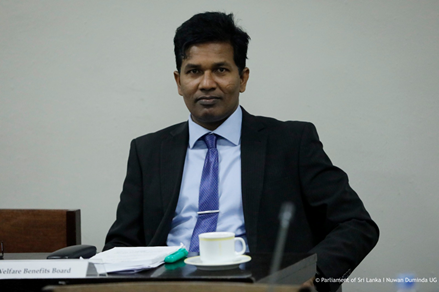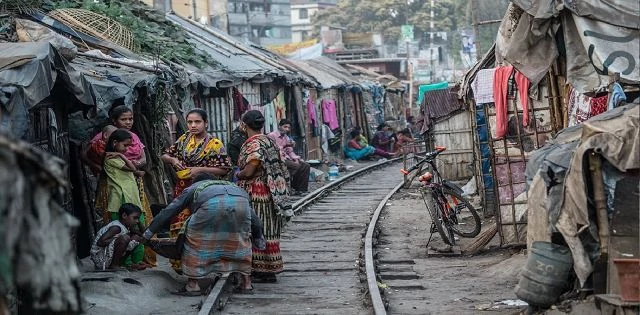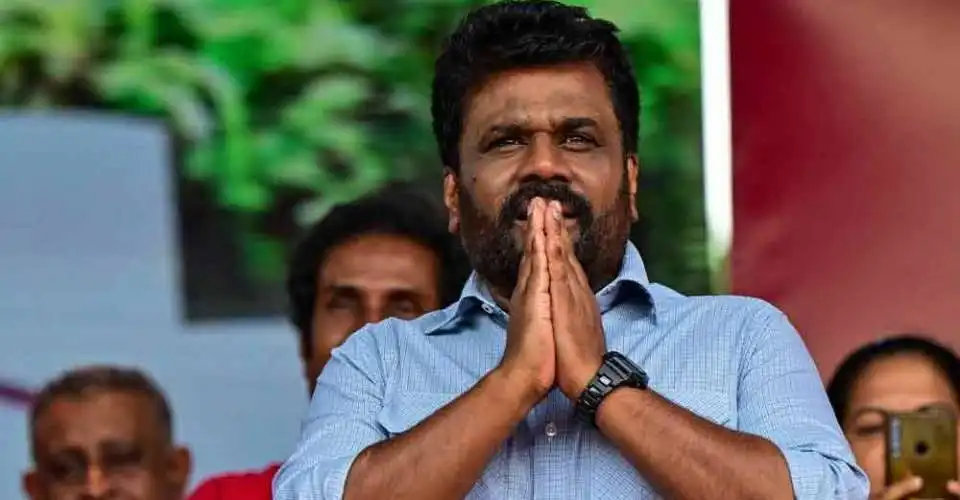By Visvalingam Muralithas
Sri Lanka holds immense untapped economic potential, bolstered by its strategic location along major global trade routes, rich natural resources, and a vibrant cultural heritage. Yet, despite these advantages, the nation has faced significant setbacks in recent decades—civil conflict, political instability, economic mismanagement, and rising poverty. Against this backdrop, the call to “Make Sri Lanka Great” is more than a slogan; it is a mission. It represents a collective vision to restore economic stability, promote inclusive growth, and unlock a future of opportunity for all Sri Lankans.
Reclaiming Sri Lanka’s Historical Greatness
Historically, Sri Lanka was a flourishing center of commerce, education, and cultural exchange in the Indian Ocean. Its location between East and West positioned it as a maritime trade hub linking Asia, the Middle East, and Europe. Ports such as Colombo, Galle, Trincomalee, KKS connected global traders, scholars, and travelers, fostering a dynamic and prosperous economy.
Today, reviving this legacy is crucial. Economic renewal must be anchored in a fusion of historical insight, national unity, and bold innovation. To move forward, Sri Lanka must:
- Reclaim its legacy of knowledge, resilience, and productivity.
- Promote confidence in its global economic potential, encouraging innovation, entrepreneurship, and investment.
- Ensure social inclusion, recognizing that unity across ethnic and religious lines is foundational to sustainable growth.
By leveraging its geographic strengths, investing in human capital, and creating a transparent, investor-friendly environment, Sri Lanka can once again become a leading player in regional and global trade.
Economic Challenges
Sri Lanka’s development path is obstructed by a complex web of systemic challenges. An ongoing economic crisis—driven by high debt, poor fiscal discipline, and import dependency—has caused inflation, job losses, and currency depreciation. Political instability and inconsistent policymaking further undermine investor confidence and long-term planning.
Social divisions, rooted in a civil war that ended in 2009, continue to impact national unity. Additionally, youth unemployment and the outmigration of skilled workers are weakening the nation’s human capital. Environmental degradation through deforestation, pollution, and unregulated urbanization threatens tourism, agriculture, and long-term resilience. Addressing these interconnected issues is essential to laying a foundation for economic recovery and sustainable progress.
A New National Vision
To become truly great, Sri Lanka must redefine development beyond GDP and infrastructure. A developed Sri Lanka should be:
- Economically strong, with robust industries in technology, tourism, agriculture, and services.
- Socially cohesive, where every citizen is treated equally and with dignity.
- Globally respected, as a democratic, peaceful, and environmentally responsible nation.
- Empowering to youth, offering them opportunities to succeed at home, not just abroad.
Foreign-to-Local Citizen Ratios
The Foreign-to-Local Citizen Ratio is more than just a demographic statistic — it serves as a valuable indicator of a country’s openness, safety, and attractiveness to the global community. A healthy ratio often reflects a nation’s ability to provide freedom, security, and economic opportunity to foreigners who visit, live, work, or invest
| Country | Total Population | Foreign Residents | Local Citizens | Foreign-to-Local Ratio |
| Singapore | 6.04 million | 1.86 million | 4.18 million | 44% |
| Sri Lanka | 23.23 million | 0.3 million | 22.9 million | 1.3% |
| United States | 332 million | 53.5 million | 278.5 million | 15.8% |
| Germany | 82.7 million | 14.06 million | 68.64 million | 17% |
| United Arab Emirates | 9.89 million | 8.89 million | 1 million | 90% |
For example, Singapore’s 44% foreign-to-local ratio has supported its rise as a financial and innovation hub by filling labor gaps and driving productivity. While Sri Lanka’s 1.3% ratio reflects low foreign participation, strategic immigration and talent attraction could contribute to economic revitalization.
Singapore, the UAE, and Germany have higher foreign-to-local ratios, signaling environments where international residents feel safe, welcomed, and empowered. These nations offer stable governance, clear legal frameworks, and strong institutions that attract foreign workers, investors, and entrepreneurs.
A favorable ratio also shows that a country:
- Ensures security and legal protection for foreigners.
- Provides infrastructure and services that support international living and business.
- Encourages foreign direct investment (FDI) and startup ecosystems by reducing red tape and fostering trust.
- Embraces cultural diversity, creating a dynamic and innovative society.
For Sri Lanka, improving its foreign-to-local ratio can boost its global reputation as a safe, business-friendly, and forward-looking nation. By creating an environment where foreigners feel confident to visit, reside, invest, and contribute, the country can unlock new economic opportunities and accelerate its journey toward sustainable development.
Economic Renewal
To make Sri Lanka great, a comprehensive strategy is required:
- Good Governance: Eliminate corruption, strengthen democratic institutions, and promote transparency and rule of law.
- Economic Transformation: Support local production, SMEs, and ethical foreign investment. Create a resilient, diversified, and export-oriented economy.
- Education and Skills: Modernize the education system to meet future job demands, especially in IT, engineering, tourism, and creative sectors. Expand vocational training to empower youth.
- Social Inclusion and Reconciliation: Promote national unity through inclusive governance, equal rights, and decentralization to ensure all regions benefit from development.
- Environmental Sustainability: Invest in clean energy, eco-tourism, and sustainable agriculture. Protect forests, oceans, and heritage sites to maintain long-term economic and ecological balance.
- Fiscal and Institutional Reform: Improve tax systems, streamline public spending, and create a stable investment environment to manage debt and rebuild confidence.
- Knowledge Economy: Position Sri Lanka as a digital hub in South Asia by investing in R&D, digital infrastructure, and innovation ecosystems.
Conclusion
The country has the potential to follow the path of nations like South Korea, Japan, and Singapore — countries that transformed crisis into opportunity through strong leadership, national unity, and long-term reform.
To achieve this, Sri Lanka must embrace good governance, invest in human capital, promote entrepreneurship, and prioritize sustainable development. The nation’s future greatness depends on bold economic transformation rooted in its unique strengths. With a clear vision, inclusive policies, and collective commitment, Sri Lanka can rise above its challenges and secure a peaceful, prosperous, and globally respected future.
Writer

Visvalingam Muralithas is a researcher in the legislative sector, specializing in policy analysis and economic research. He is currently pursuing a PhD in Economics at the University of Colombo, with a research focus on governance, development, and sustainable growth.
He holds a Bachelor of Arts in Economics (Honours) from the University of Jaffna and a Master’s degree in Economics from the University of Colombo. His academic background is further strengthened by postgraduate diplomas in Education from the Open University of Sri Lanka and in Monitoring and Evaluation from the University of Sri Jayewardenepura.
In addition to his research work, Muralithas has contributed to academia by teaching economics at the University of Colombo and the Institute of Bankers of Sri Lanka (IBSL) and has also gained industry experience as an investment advisor at a stock brokerage firm affiliated with the Colombo Stock Exchange.
📧 Email: [email protected]
📞 Phone: +94 778135971





